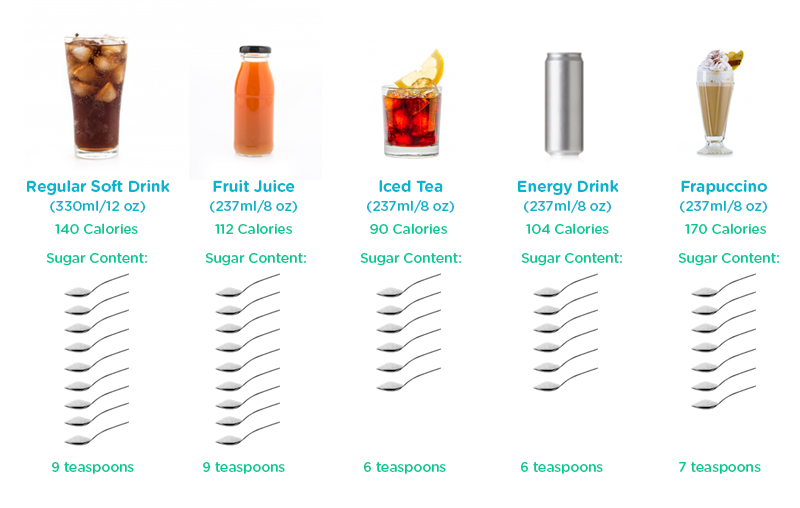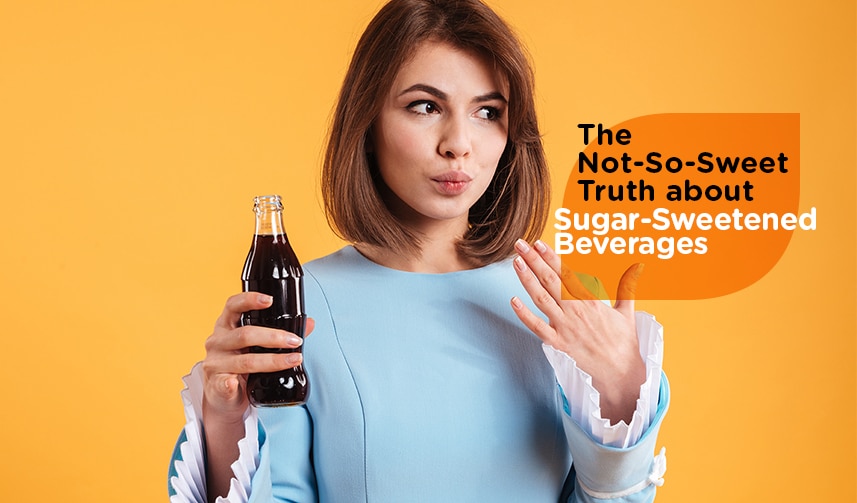Sugar-sweetened beverages are heavy on calories and sugar but provide little to zero nutritional value. Frequent consumption of such beverages can put a person at risk for type 2 diabetes. If you have diabetes, drinking too much sugary drinks will dramatically raise your blood sugar levels and over time lead to serious complications. Sugar-sweetened beverages include regular soft drinks, fruit drinks, energy drinks, sports drinks, and sweet tea, among others.
An increasing number of Filipinos are falling into the “sugar trap”. A Philippine Institute for Development Studies (PIDS) report found that in 2005, Filipinos consumed almost 15 grams of sugar per person per day from sugar-sweetened beverages alone. A decade later in 2015, this figure increased to nearly 22 grams. This is the reason why many Filipinos are gaining weight. The National Nutrition Surveys conducted from 2003 to 2015 revealed that the number of overweight or obese Filipinos across age groups, especially among the poor, is rising steadily.
Let’s break down the sugar and caloric content of some common sugar-sweetened beverages:

Higher consumption of sugary drinks has also been linked to obesity, heart disease, kidney diseases, non-alcoholic liver disease, tooth decay and cavities, and gouty arthritis.
Studies in the United States show that individuals who drink such beverages are more likely to adopt less healthy behaviors. These include smoking, not getting enough sleep, not exercising regularly, eating fast food often and not eating fruits regularly. Teenagers who consume a lot of these drinks also spend more time watching TV, playing video games, and using cell phones and computers.
If you are diabetic, you need to switch to healthy alternatives such as plain water, fruit- or vegetable-infused water (for flavor without the calories), and carbonated water (to substitute for the fizz of soda).






